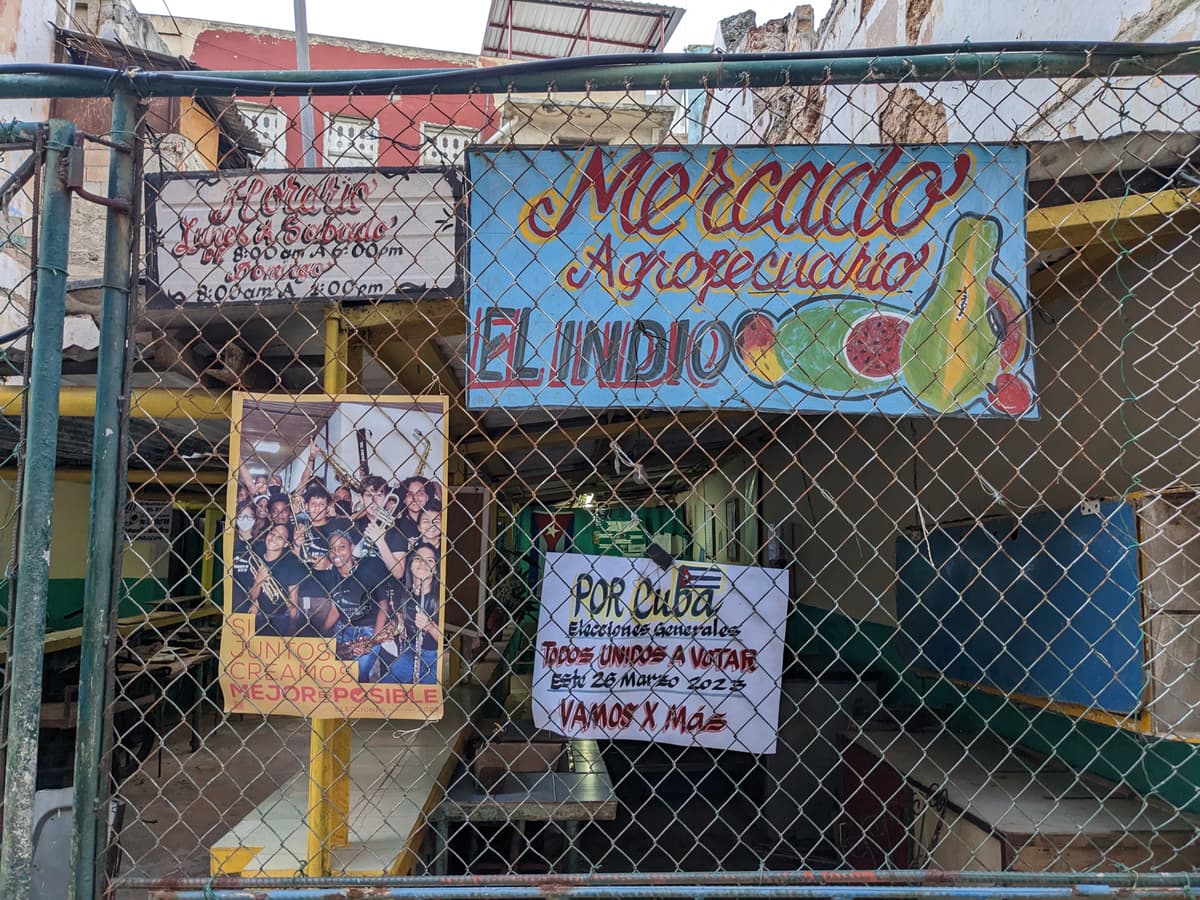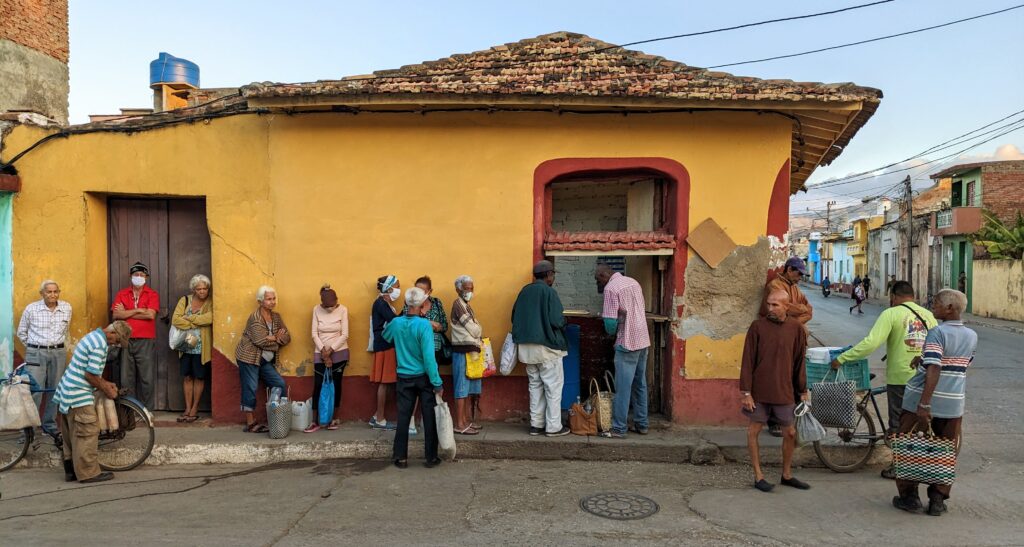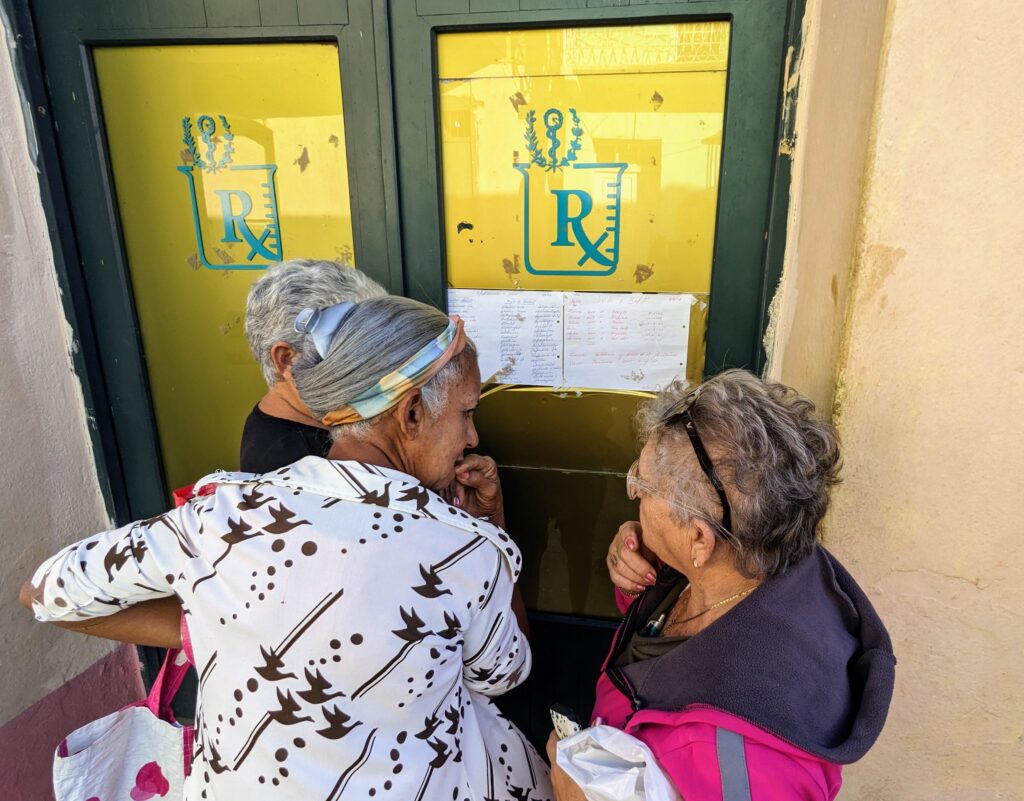Cuba’s Deprived, Depressed Citizens Wary of Country’s Farcical ‘Elections’
When a visitor asks the average Cuban on the street about the elections, the most common response is a dismissive huff and a flip of the wrist.

HAVANA – In a push to get Cuba’s increasingly apathetic populace to vote in Sunday’s legislative elections, the government here is turning to the one place it knows it can reach potential voters — the bakeries where they must stand in line every morning to collect their daily ration of bread rolls.
In the window of practically every panadería in central Havana are leaflets touting the candidates who will be elected regardless of how many votes are cast or for whom. There are 470 candidates in total for 470 seats in the National Assembly. There are no candidates opposing those in the Communist Party, and campaigning is illegal, which might explain why, when a visitor asks the average Cuban on the street about the elections, the most common response is a dismissive huff and a flip of the wrist.
“No one cares anymore,” a woman who works in the service industry in the provincial city of Trinidad said. “Things have changed,” she added, using her thumb and index finger to pry open her eyelids. “We know more about the world now because of the internet.”
Like many others, she changes the subject quickly. What they would rather talk about is the rampant inflation in the country, the rolling blackouts that brick their fans and air-conditioners for hours every day during the afternoon heat, and the shortage of everything from milk and rice to tampons and bath soap.

Scott Norvell/The New York Sun
One elderly woman in Trinidad was accosting tourists in the town’s central plaza last week, begging them for any clothes they may have to spare or, by some miracle, an extra bottle of painkillers they could leave with her. “I have nothing,” she said. “I can’t get any medicine for anything anymore.”
Cuba is going through what almost everyone on the island says is the worst economic crisis since the so-called Special Period of the mid-1990s, when the subsidies from Moscow ended after the collapse of the Soviet Union. Many say the current crisis is even worse than the earlier one, during which tens of thousands of young Cubans were so desperate to escape that they took to the Florida Straits in makeshift rafts in efforts to make it to America. Some 30,000 of them were intercepted at sea and held for months at the U.S. Naval base at Guantanamo Bay before finally being allowed to emigrate by the Clinton administration.
A nascent tourism industry that was booming before the pandemic following a thaw in U.S.-Cuban relations during the Obama administration collapsed in 2020, shrinking the country’s GDP by nearly 11 percent that year. Growth during 2021 was an anemic 1.3 percent, and another exodus from the island is now underway. Some 300,000 Cubans showed up at America’s southern border in 2022 hoping for relief, and tens of thousands of others have fled to other countries.
Many of those who fled remain on the voting rolls, and their absence could further tamp down participation in the polling. Voter turnout for Cuba’s elections in the past often surpassed 90 percent, but that number has been declining in recent years. During municipal elections last fall, only 69 percent of eligible voters bothered to turn out. Two years earlier, 89 percent turned out.

Government messaging around Sunday’s election has attempted to convince people that voting is a patriotic duty, a display of “unity” in the face of Yanqui aggression and the embargo that the government has used for decades as an excuse to conceal the economic malfeasance of its centrally planned Communist economy. At a rally with textile workers in Santa Clara aired on local television and posted on social media, Cuban President Miguel Diaz-Canel — who is himself a candidate — said the vote was “for the revolution … and to continue to defend our socialist system.”
Rather than meaningless elections, however, it is that “system” that most Cubans are openly complaining about these days. In previous years, people on the street would have hesitated to criticize their lot in life with strangers for fear of being overheard by block captains with the so-called Committees in Defense of the Revolution who serve as the regime’s eyes and ears in neighborhoods throughout the country. That reticence appears to be fading, battered by the deprivation and despair depressing the island at the moment.
An older woman with kinky white hair and a floor-length housecoat who was feeding the neighborhood stray cats in central Havana one Sunday morning recently had no time for talk about elections. She reserved her scorn for “la sistema.” “Nothing works here,” she told a passing visitor. “The garbage collection doesn’t work. The schools don’t work. The transport doesn’t work. The system,” she said with a sneer, “doesn’t work.”

